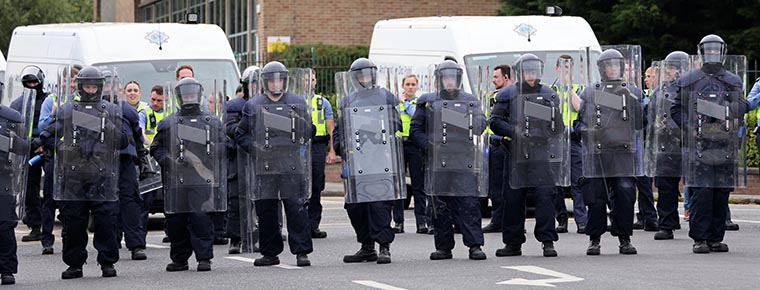
FRT use in policing ‘high-risk’ – AI report
A report from the AI Advisory Council has said that there must be “a clear legal basis” for any use of facial-recognition technology (FRT) by the gardaí.
The body, which was set up by the Government to provide independence advice on AI, describes the use of the technology in law as “high-risk, given its impact on fundamental rights”.
The recommendations on FRT are part of the council’s wider report, Helping to Shape Ireland’s AI Future, published on Friday (21 February).
It contains recommendations in several areas likely to be affected by AI – including the labour market, business, education, infrastructure, and the creative sector.
On FRT, the council says that public transparency, engagement, and accountability are crucial to building public trust in the contemplated use of FRT in policing and its operational parameters.
The Government’s spring legislative programme includes a bill allowing the use of FRT is some circumstances. The Garda Síochána (Recording Devices) (Amendment) Bill has been prioritised for early publication.
Underlying legal basis
“If a decision is made to legislate for use of FRT by An Garda Siochana, primary legislation must clearly indicate the underlying legal basis for it, its use cases, and legal parameters for how facial-recognition databases will be compiled,” the AI Advisory Council report states.
The report “strongly recommends” that, before FRT is procured or deployed, there should be a “comprehensive independent evaluation” of FRT tools in real-world conditions “relevant to Irish law enforcement and across all demographics” by an AI expert group.
The council adds that regular independent auditing of FRT deployment should be provided for as a safeguard.